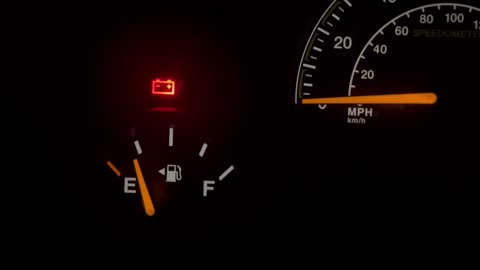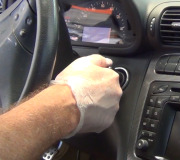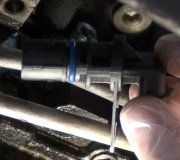You're describing a failed charging system. When it doesn't keep the battery charged, system voltage drops as the battery slowly runs down. Computers are very intolerant of low system voltage so they start to shut down. They turn on their warning lights to tell you.
The place to start is by recharging the battery at a slow rate overnight, with a small portable charger. This used to take just a couple of hours, but your vehicle likely has a newer design "AGM" battery. Those take longer to recharge.
Once charged overnight, the engine should crank and run. At that point you can start the charging system tests yourself with an inexpensive digital voltmeter. If you've never used one before, check out this article first:
https://www.2carpros.com/articles/how-to-use-a-voltmeter
They're using an auto-ranging meter here which is an expensive feature you don't need. You can find a perfectly fine meter at Harbor Freight Tools for around $7.00. Also look at Walmart or any hardware store. If necessary, I can help you set it up.
First measure the battery's voltage with the engine not running. It should be very close to 12.6 volts. If you find closer to 12.2 volts, it's good but totally discharged. If it's down near 11 volts, it has a shorted cell and must be replaced.
Next, measure the battery's voltage again when the engine is running. Now you must find between 13.75 and 14.75 volts. If it stays near 12.6 volts or less, the charging system is not working. You may be able to drive to a nearby repair shop, but it's unlikely to keep running longer than roughly 15 minutes, less if a lot of lights or accessories are turned on.
If you do find between 13.75 and 14.75 volts, that part of the test has passed, but that only means it is okay to continue with the rest of the tests. Those require the use of a professional load tester. Every dealership and every independent repair shop has one of those. Specifically, they'll check for "full-load output current", and "ripple" voltage. These tests take just a couple of minutes.
Every alternator starts with a minimum of six "diodes". Those are one-way valves for electrical current flow. When one of them fails, you'll lose exactly two-thirds of the alternator's output capacity.
A number of different alternators were available for your model and year. A 120-amp is common, and rather big, but if one diode has failed, the most the alternator can develop will be very close to 40 amps. That's not enough to run the engine, computers, lights, heater fan, fuel pump, and keep the battery charged. The battery will have to make up the difference as it slowly runs down. With this type of defect, the charging voltage you measured at the battery can be perfect, but the battery will still run down over hours or days.
Let me know what you find up to this point.
Thursday, December 8th, 2022 AT 6:46 PM




